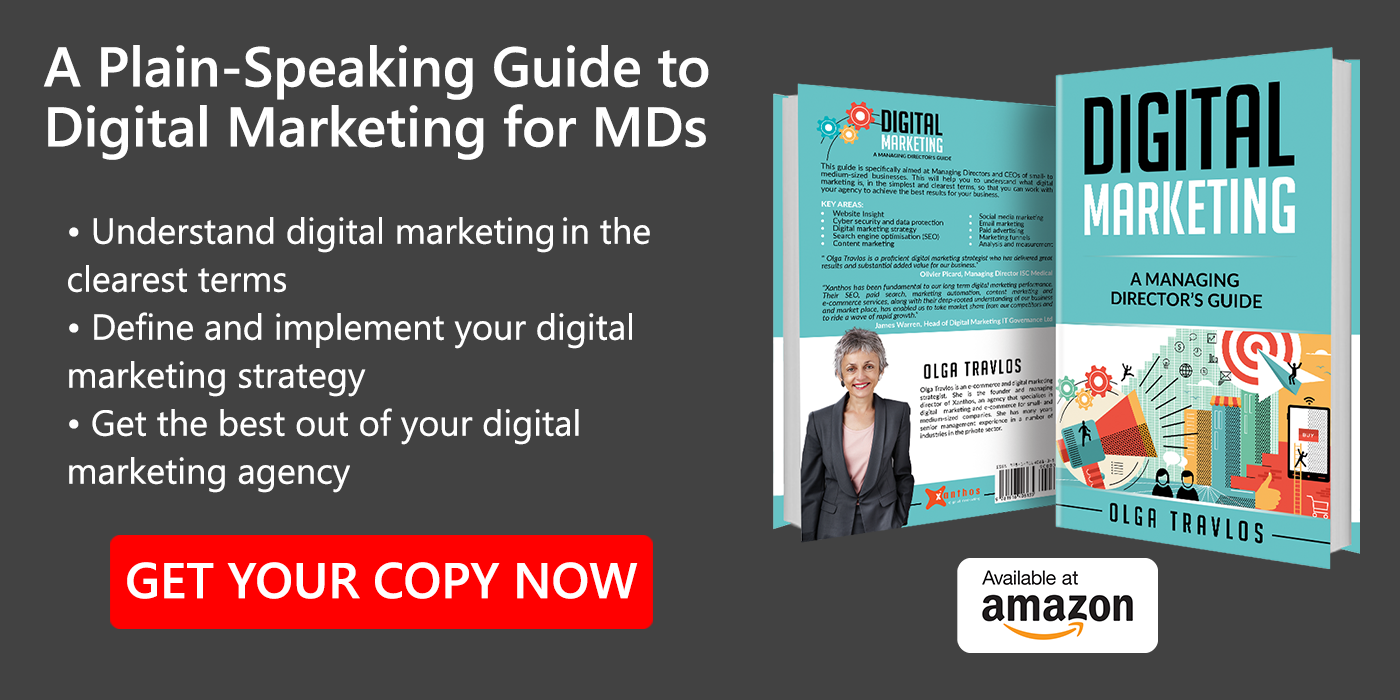Why do I need a digital marketing strategy?
A digital marketing strategy helps to lay the foundation for your ongoing digital marketing activities.
If you don’t outline a specific digital marketing plan as part of your strategy, your digital marketing activity may fall short of your expectations, and fail to achieve your business goals.
Without a digital marketing strategy in place, you simply don’t have the clearly defined goals necessary in order to drive your business growth online.
It’s important to outline your objectives, how you are going to go about achieving them, and how you will analyse and optimise your marketing in the future.

What is involved in a digital marketing strategy?
A digital marketing strategy is the first step in getting the most effective and well-optimised online marketing activities.
A digital marketing strategy should define any transformations required in order to implement your marketing objectives. It should make a case for investment in your digital marketing activities, and how to get the best ROI.
Outline your objectives
These could be
- Improve brand recognition
- Increase leads
- Increase sales
- Market to new target audiences
- Improve online presence
- Grow your market share
The budget
Outline a budget that allows you to achieve your goals. Many business owners have big goals, but fail to invest the right budget in digital marketing. It’s important to assess the most important goals, and how much you will allocate to this.
Map a path
How are you going to achieve your goals?
Integration
How are you planning to integrate digital marketing into your wider marketing strategy, business goals, or other activities?
Competitor analysis
How does your marketing activity compare to competitors? Is your online presence poor in comparison? Does your website need improvement in order to compete?
Target audience
Outline your target audience, by demographics, interests, psychographic characteristics and so on.
Segment them
Create a persona of a person you can keep in mind when marketing. Who is your ideal customer? What appeals to them? Where can you find them online? What marketing channels or tactics would be most effective to this individual?
Decide on marketing channels
Which will work best based on your target audience? Social media? Search? PPC? Email marketing? Do they frequent particular websites, groups, or otherwise?
The benefits of a digital marketing strategy
1. Give your digital marketing direction
Once you decide to create a strategy, you can outline clear strategic goals you want to achieve.
Whatever these goals may be, whenever you are marketing online you or your team can keep these in mind. Whether it’s gaining customers, building relationships, and so on – your goals should be clearly identified and be part of any digital marketing activity that goes on.
You can also find out any weaknesses you may have. In particular, do you have the resource to reach your goals? And how are you going to analyse the success of your digital marketing activities? How will this direct what you do in the future?
2. Outline value proposition
When it comes to marketing your product or service online, you’re bound to be competing with other competitors.
So how exactly are you going to differentiate your product or service?
This is where your strategy can really help you dig deep into what makes you different, and how you can appeal to your target audience. What can you do to encourage customers to engage with your brand over competitors, and boost your sales?
3. Know your target audience
Finding your target audience can be difficult for business owners when it comes to digital marketing. And knowing how to target and market to your target audience is essential.
So do you know where to find your key target audience, and how you can appeal to them? What kind of collateral appeals to them? Do they prefer written content? Visual content? Perhaps videos are popular with them?
But thankfully, digital marketing is very, very measurable, which is why many business owners find it effective and useful in honing who they market to.
However, Google Analytics is often not enough in order to analyse your audience. You could aim to get feedback from your key target audience in order to best serve other customers in the future. Perhaps a survey, a quiz, or otherwise. This can help you optimise your future campaigns.
4. Integrate your digital marketing
A clear strategy helps to integrate your digital marketing activities with other areas of your business.
Digital marketing can often become isolated from the rest of your business, while one or a few members of your team may slave away on a PC with online marketing activities. Or perhaps they do it sporadically, and don’t realise how important it is to the perception of your brand online. Maybe the rest of your team doesn’t know what you or your digital marketing team are actually doing online?
This should not be the case, as it needs to be integrated into wider business goals. A strategy helps you do this. You can help ensure campaigns are aligned with other media, marketing campaigns, or other response channels you may have.
5. Give digital marketing the right budget
It’s easy to dismiss digital marketing as unimportant, or an unnecessary part of the business when you are doing fine. But most business owners are fine with doing “fine”. It can always be better. And allocating a good and practical budget to digital marketing is the first step.
Think about how often a website is the first impression a customer may have of a brand. How often have you heard of a business, brand or product, Googled it, landed on a website, and judged it there and then? No doubt potential customers are doing the same with your brand.
What about the marketing activities that get someone to go to your website? Even then, if the brand impression is poor, they won’t even be making it onto your website.
A strategy should outline where you have insufficient resource to achieve your goals, as well as any skills you may not have internally. Outsourcing could be the way forward.
6. Improve ROI and don’t waste your money
Getting ROI from your marketing campaigns is essential, in order to avoid wasted resource.
Assign the right budgets to the right areas of marketing, whether it’s channels or campaigns, that align with your goals.
An integrated approach to digital marketing works best, and generates the best ROI. This is why a strategy can help, to ensure you are integrating everything together, and that your campaigns align. Less wasted time and money.
7. Ongoing optimisation
When are you going to set aside time in order to review and act on your analysis? Your strategy should include when you will do this.
A digital marketing strategy helps you to continually improve key aspects of your digital marketing, and see exactly where are you getting results.
You should also be able to see how can you improve problem areas, and when to focus on the channels that work.
Many businesses still do digital marketing activities without a strategy. There’s no doubt that digital marketing can still be used effectively, but a strategy is always a good idea.
There is a case for the fact that without a strategy, you may be missing out on critical opportunities in order to gain better results, or to improve your targeting. It could be that your digital marketing campaigns could be better optimised, but you never find out because your marketing plan isn’t clearly defined.
Strategies are especially important when your marketing will involve multiple people. Each individual may have a different idea of the end goal, or the messaging, or any other variations that can arise. A digital marketing plan can outline opportunities and problems, and how to handle them. People may act differently.
Overall, the important thing is that you are doing digital marketing. However, if you’re already marketing without a plan, it’s always worthwhile to stop and think how you can improve your digital marketing efforts. And the first step in doing so is to take a step back, formulate a strategy, create a marketing plan, and reassess your next steps.
If you need help formulating a digital marketing strategy that takes your brand to the next level online, get in touch with the team at Xanthos, and someone will get back to you shortly.














